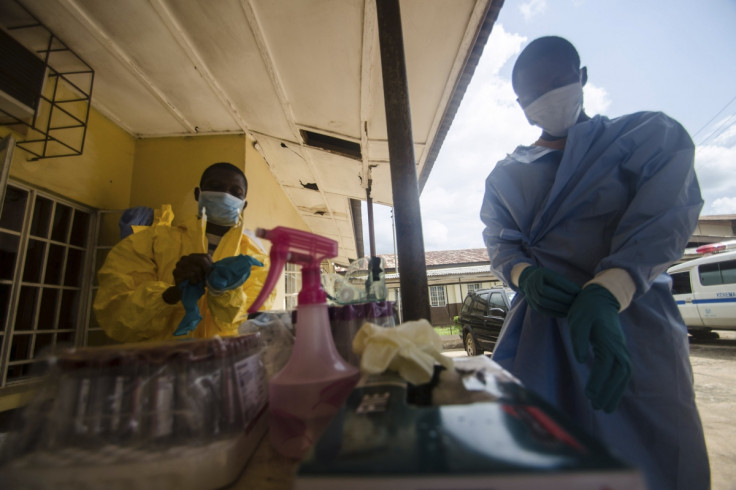Ebola Outbreak: Liberia Seals Borders to Check Spread of Virus as Toll Crosses 670

The Liberian government has closed most of the West African nation's border crossings and introduced stringent health measures in a bid to curb the spread of Ebola that has killed over 670 people so far.
Despite efforts to fight the disease, the virus continues to spread.
The scramble to seal borders follows fears of the disease crossing over to Lagos after confirmation of the death of a Liberian official who had travelled to Africa's largest city with 21 million people.
An outbreak in Lagos, a megacity where many lived in cramped conditions, could be a major public health disaster.
Meanwhile, one of Liberia's most high-profile doctors, Samuel Brisbane, has died of Ebola, officials said. He was treating Ebola patients at the John F Kennedy Memorial Medical Center in Monrovia, when he fell ill.
An American physician, Kent Brantly, is being treated in a Monrovia hospital. Earlier this month, a Ugandan doctor died.
Besides Brantly and the two doctors in Liberia, Sierra Leone's top Ebola doctor and a doctor in Liberia's central Bong County have also fallen ill.
Doctors Without Borders has declared the present outbreak "out of control". The group with around 300 staff is a principal provider of Ebola care, but is as overwhelmed as the WHO by the present outbreak.
In earlier outbreaks, authorities could effectively check the spread of Ebola by isolating the sick and caring for them, using protective gear and educating communities on how it spreads.
But for the first time it has spread outside remote regions, reaching capital cities, the group noted. Centred at the crossroads connecting Guinea, Liberia and Sierra Leone, the region is a place of high mobility. Caregivers transmit the virus during long commutes. Washing and touching the bodies during the funeral also spreads the virus.
The situation ''is getting scarier'', said Tolbert Nyenswah, Liberia's assistant health minister.
Health workers are among those at the greatest risk of contracting the disease, which spreads through contact with bodily fluids.
Photos of Brantly working in Liberia show him swathed head-to-toe in white protective coveralls, gloves and a mask that he wore for hours a day while treating Ebola patients. That he was still infected goes to highlight the risks facing health workers.
The death of the ministry consultant at Lagos raised fears that other passengers could take the disease beyond Africa due to weak inspection of passengers and the fact that Ebola's initial symptoms like sore throat and fever are similar to other diseases.
International airports in Nigeria are now screening passengers arriving from foreign countries for symptoms of Ebola, and airports in Guinea, Liberia and Sierra Leone have implemented some preventive measures. But none of the safeguards are foolproof, say health experts.
Associate Professor Ian Mackay from the Australian Infectious Diseases Research Centre and the University of Queensland said: "Things are happening quickly, disease is spreading, people are panicking and there's no background of information for the community to fall back on, they aren't really used to this virus, how it's acquired; even researchers are still in the dark about a number of different ways that the virus can transmit, exactly what animals have it, in this case where it started.
"So when people come along from outside and suddenly start saying you can't be there when you bury your dead, you can't eat that food - it can become very difficult."
Cure And Care
Ebola has no cure so far. It can kill up to 90% of those who catch it, although the fatality rate of the current outbreak is around 60%. Highly contagious, especially in the late stages, its symptoms include vomiting and diarrhoea as well as internal and external bleeding.
Receiving care in time – providing fluids, replacing lost blood, etc -- quickly improves survival rate to 30%. But Ebola-specific treatments are still at a research level.
At least 1,201 people have been infected in Liberia, Sierra Leone and Guinea, according to the World Health Organization, and 672 have died. Besides the Liberian fatalities, 319 people have died in Guinea and 224 in Sierra Leone.
The WHO says the disease is not contagious until a person begins to show symptoms.
The West Africa outbreak is believed to have begun as far back as January in southeast Guinea, though the first cases weren't confirmed until March.
© Copyright IBTimes 2025. All rights reserved.




















